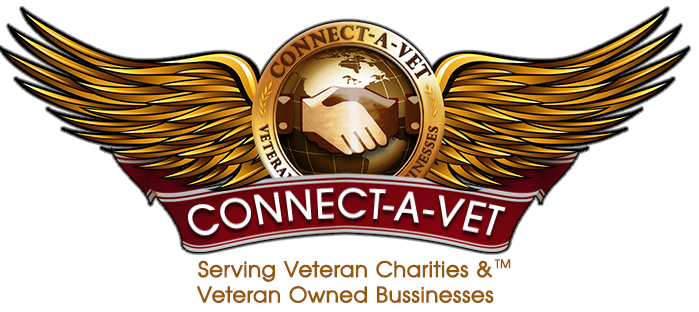Navigating the complexities of PTSD can be an overwhelming journey for both the individual experiencing it and their loved ones. When traditional medical approaches fall short, it becomes crucial for family members, spouses, children, and close friends to step in with understanding, compassion, and informed support. This involvement can make a significant difference in the healing process, fostering a safe environment for the victim to navigate their challenges.
Understanding PTSD: The Family and Friend’s Role:
PTSD alters the brain’s functioning, impacting emotions, memory, and stress responses. This change can result in behaviors that seem irrational or uncharacteristic. For instance, a veteran may suddenly become withdrawn or irritable, reacting disproportionately to situations that would typically be manageable. Recognizing that these responses stem from trauma can help family members approach their loved one with patience, avoiding blame or misunderstanding.
The Collective Journey of Healing:
Healing from PTSD is not a solitary journey for veterans; it requires a supportive network of family and friends who understand the complexities of their experiences. The notion that warriors can heal themselves often overlooks the profound impact that love, empathy, and understanding from loved ones can have on their recovery. While veterans may work hard to confront their trauma and learn coping strategies, the emotional burdens they carry can feel insurmountable without the presence of supportive relationships.
The Role of Family and Friends:
Family and friends play a critical role in this healing process by providing a sense of stability and safety. Their willingness to listen without judgment fosters an environment where veterans can express their feelings and fears openly. This emotional connection can help alleviate feelings of isolation and hopelessness, reminding veterans that they are not alone in their struggles. Simple gestures, like checking in regularly, offering a helping hand, or just being present during tough times, reinforce the message that support is unwavering and unconditional.
Rebuilding Trust and Empowering Recovery:
Moreover, the act of sharing love and understanding helps to rebuild trust, which is often eroded by traumatic experiences. When family members demonstrate patience and compassion, they contribute to a healing atmosphere where veterans can gradually lower their defenses. This trust not only enables deeper emotional exchanges but also empowers veterans to confront their challenges more confidently, knowing they have a solid support system behind them. Ultimately, healing is a collective journey, and the strength of family and friends can be a transformative force in a veteran’s recovery process.
The Power of Communication:
Communication is a critical component in supporting a loved one with PTSD. Family members should strive to create an open and non-judgmental environment where the individual feels safe sharing their experiences and emotions. This involves active listening, where the focus is on understanding rather than responding or offering solutions. Validating the individual’s feelings and acknowledging their struggles can significantly reduce feelings of isolation and shame.
Recognizing Triggers:
Additionally, it is important for family members to recognize the triggers that might cause a PTSD episode. These can vary widely from loud noises to specific smells or even certain times of the year. By identifying and minimizing exposure to these triggers, families can help create a more stable and secure environment for their loved one. Open discussions about these triggers can also lead to better preparedness and more effective coping strategies.
Embracing Unpredictability:
One of the challenges in dealing with PTSD is the unpredictability of symptoms. Family members must be prepared for good days and bad days, understanding that progress in healing is often non-linear. Flexibility and patience are crucial. Celebrating small victories and maintaining a hopeful outlook can encourage the individual to continue their healing journey.
Fostering Inclusion:
Involving the individual in family activities and routines can provide a sense of normalcy and belonging. However, it’s essential to be mindful of their limits and avoid pressuring them into situations that may cause stress or discomfort. Gentle encouragement and positive reinforcement can help them gradually re-engage with daily life and social interactions.
Finding Support Together:
Support groups for family members of PTSD sufferers can also be invaluable. These groups provide a space to share experiences, gain insights, and receive emotional support from others facing similar challenges. Understanding that they are not alone in this journey can be incredibly comforting and can provide new strategies for supporting their loved one.
Raising Community Awareness:
Education should extend beyond the immediate family to friends and the broader community. By raising awareness about PTSD, families can foster a more understanding and supportive network. This broader support can alleviate some of the burdens on the primary caregivers and create a more inclusive environment for the individual with PTSD.
Prioritizing Self-Care:
Lastly, promoting self-care and resilience within the family unit is essential. Family members need to maintain their own mental and physical health to be effective supporters. This involves setting boundaries, seeking professional help when needed, and ensuring they have their own outlets for stress relief and relaxation. By taking care of themselves, family members can sustain the energy and compassion needed to support their loved one through their PTSD journey.
Conclusion:
Understanding PTSD and its impact on the family is a complex but essential part of the healing process. By educating themselves, maintaining open communication, recognizing triggers, being patient, involving the individual in family life, seeking support, raising awareness, and practicing self-care, families can play a pivotal role in their loved one’s recovery. This supportive framework can lead to significant progress and help the individual with PTSD regain a sense of control and normalcy in their life.

